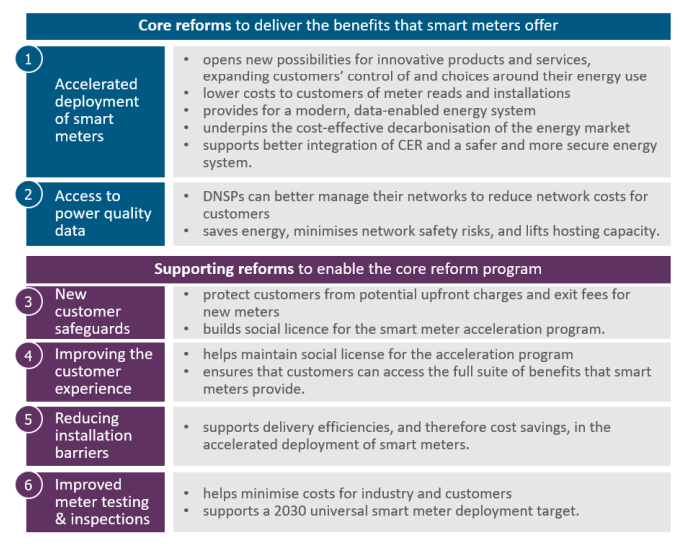Here's the game you didn't know you needed to play
Electricity distribution networks are complicated. So are the games based on them.
The AEMC wants to accelerate a universal smart meter rollout, targeting completion of a universal smart meter deployment by 2030.

The Australian Energy Market Commission (AEMC) has published a draft determination and draft rule to deploy smart meters to all customers by 2030.
The draft rule would introduce eight reforms:

The proposed rule change includes consumer protections intended to minimise resistance and potential for refusal of the smart meter upgrades, and maximise benefit.
In particular, the proposed rules specify that no up-front fees can be charged for smart meter replacement.
Upfront customer charges for smart meter deployments could create social licence risks and impact the overall success of the acceleration program.
Although retailers currently do not typically pass on upfront costs to customers, under the proposed draft rule, retailers would be explicitly prohibited from imposing any upfront charges or exit fees on small customers for a smart meter replacement.
This excludes new connections, customer-initiated deployments, or deployments resulting from the customer installing solar PV or a battery.
The draft rules also specify a minimum standard of information provision for energy consumers through the upgrade process
A key deficiency in the historical management of tariff changes and introduction of new tariff types such as time-of-use and demand tariffs has been the very poor attention to education of energy consumers before these tariff changes are imposed on them.
A recent and fast-growing concern is the forced migration of energy consumers to Demand Tariffs which is accelerating quickly, despite there being very little communication and education about Demand Tariffs from the energy retailers, and despite the 'official' comparison services Energy Made Easy and Victoria Energy Compare being unable to assist their users to conduct a Demand Tariff comparison.

Savings as a Service is the blog site and newsletter from Bill Hero. Subscribe now and get your energy savings tips and information delivered fresh to your inbox every month.